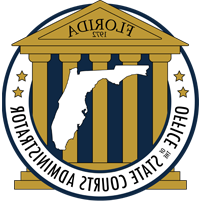Labor Trafficking
Human Trafficking in Florida
Section 787.06(2)(d), Florida Statutes, defines human trafficking as “transporting, soliciting, recruiting, harboring, providing, enticing, maintaining, or obtaining another person for the purpose of exploitation of that person.” The Office of the State Courts Administrator has developed the following human trafficking overview regarding human trafficking in Florida.
Human Trafficking is Modern Day Slavery
The Florida Legislature finds that human trafficking is a form of modern-day slavery. Victims of human trafficking are young children, teenagers, and adults. Thousands of victims are trafficked annually across international borders worldwide. Many of these victims are trafficked into the state of Florida. Victims of human trafficking also include citizens of the United States and those persons trafficked domestically within the borders of the United States. The Florida Legislature finds that victims of human trafficking are subjected to force, fraud, or coercion for the purpose of sexual exploitation or forced labor.
Human Trafficking Includes Labor Exploitation
The Florida Legislature finds that while many victims of human trafficking are forced to work in prostitution or the sexual entertainment industry, trafficking also occurs in forms of labor exploitation, such as domestic servitude, restaurant work, janitorial work, sweatshop factory work, and migrant agricultural work.
The Isolation and Fear of Human Trafficking Victims
The Florida Legislature finds that traffickers use various techniques to instill fear in victims and to keep them enslaved. Some traffickers keep their victims under lock and key. However, the most frequently used practices are less obvious techniques that include isolating victims from the public and family members; confiscating passports, visas, or other identification documents; using or threatening to use violence toward victims or their families; telling victims that they will be imprisoned or deported for immigration violations if they contact authorities; and controlling the victims’ funds by holding the money ostensibly for safekeeping.

.png)